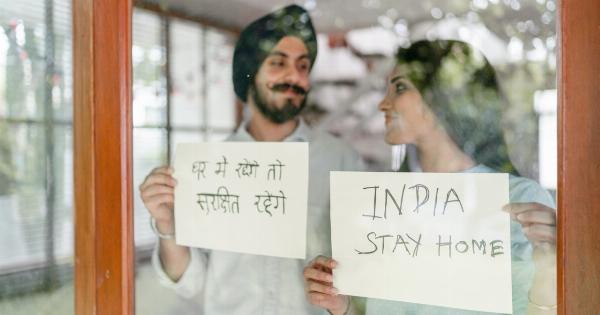As humans, we often find ourselves wondering if people forget about us quickly. Whether it’s a result of a break-up, a job loss, or simply moving away from our social circles, the fear of being forgotten can be quite unsettling.
However, it’s important to remember that people’s memories are often more resilient than we give them credit for. While it is true that time can erode certain connections and fade memories, there are various factors at play that determine whether or not someone forgets about you quickly.
The power of first impressions
First impressions have an undeniable impact on how someone perceives and remembers us. They are crucial in shaping others’ opinions and can leave a lasting imprint.
Often, people remember the initial encounters with individuals they meet for the first time, especially if those interactions were memorable in a positive or negative way. So, if you leave a strong impression on someone during your first meeting, it’s less likely they will forget about you quickly.
Connection and emotional bonds
Another significant aspect that influences whether people forget about you quickly is the strength of the emotional bond or connection they share with you.
If you have had meaningful interactions, shared experiences, or developed deep relationships with others, they are more likely to remember you for a longer duration. Emotional bonds and connections have a way of embedding themselves in our memories, ensuring that our presence lingers in the minds of others even when we are physically absent.
Frequency of interactions
Regular interaction plays a key role in determining how quickly people forget about you.
If you frequently engage with someone, whether it’s through regular meetups, work collaborations, or social media interactions, your presence will remain more prominent in their minds. When people regularly see or communicate with you, it becomes harder to forget about your existence, as they are consistently reminded of your presence in their life.
Impactful experiences
Significant experiences have a way of etching themselves in our memories, regardless of the frequency of interactions with someone.
If you have shared impactful moments with others, whether it’s going on an adventure together, overcoming challenges, or supporting each other during difficult times, the memories created during such experiences are likely to be deeply ingrained. These memories act as a reminder of your presence and ensure that people don’t forget about you quickly.
Social media and online presence
In today’s digital age, social media and online presence play a significant role in how quickly people forget about you.
If you actively maintain an online presence through platforms like Facebook, Instagram, or LinkedIn, your visibility and accessibility increase. Regular updates, sharing of personal achievements, and staying connected virtually help in staying on people’s radar. By using social media wisely, you can ensure that people are less likely to forget about you quickly.
Importance of impact in communities and society
One way to avoid being forgotten quickly is by making an impact within your communities or society at large. Engaging in activities, events, or initiatives that have a positive influence on others can leave a lasting mark.
When you contribute to the betterment of the world around you, people are more likely to remember your efforts and the positive changes you have made. By actively participating and making a difference, you decrease the chances of being forgotten quickly.
Individual personalities and traits
Personalities and unique traits also play a role in how quickly people forget about you. If you possess qualities that make you stand out from the crowd, people are more likely to remember you even when faced with the passage of time or distance.
Whether it’s your sense of humor, kindness, intelligence, or any other distinct characteristic, these traits leave an impression that lingers in the minds of others.
The impact of life milestones
Life milestones such as weddings, graduations, promotions, or significant achievements often create lasting memories for both ourselves and those around us.
The celebratory nature and the involvement of loved ones during these milestones ensure that our presence remains fresh in their memories. By actively participating in and celebrating major life events, you increase the likelihood of staying in people’s thoughts for a longer time.
The significance of shared interests
Shared interests and hobbies can act as a strong bonding agent, even if the interactions may not be frequent.
When you bond with someone over a shared passion, whether it’s a love for music, sports, art, or any other activity, the memories of those conversations or moments related to the interest remain intact. These shared interests help create a connection that makes it less likely for people to forget about you quickly.
Transition periods and change
Transition periods and significant changes in life, both for yourself and others, can have an impact on whether people forget about you quickly.
If you are undergoing a major life change, such as starting a new job, moving to a different city, or going through a personal transformation, it can influence your interactions and connections with others. Similarly, if the people around you are experiencing changes, such as getting married, having children, or pursuing new paths, it can also affect your presence in their lives and their ability to remember you.
Conclusion
In the vast tapestry of human interactions, memories, and connections, it is natural to question whether people forget about us quickly.
While time can erode certain relationships and fade memories, several factors influence the duration for which people remember us.
First impressions, emotional bonds, frequent interactions, impactful experiences, online presence, societal impact, individual traits, life milestones, shared interests, and transitions all play a role in determining our presence in the memories of others.
Ultimately, it is crucial to remember that our existence matters and leaves an impact, even if it sometimes feels like we are easily forgotten.
By nurturing connections, engaging in meaningful experiences, and striving to make a positive difference in the lives of others, we can lessen the chances of being forgotten quickly.






























